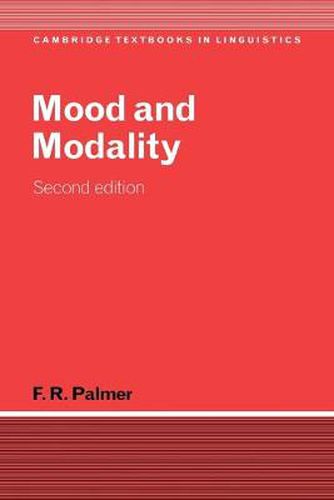Readings Newsletter
Become a Readings Member to make your shopping experience even easier.
Sign in or sign up for free!
You’re not far away from qualifying for FREE standard shipping within Australia
You’ve qualified for FREE standard shipping within Australia
The cart is loading…






Since the publication of F. R. Palmer’s first edition of Mood and Modality in 1986, when the topic of ‘modality’ was fairly unfamiliar, there has been considerable interest in the subject as well as in grammatical typology in general. Modality is concerned with mood (subjunctive etc.) and with modal markers such as English modal verbs (can, may, must etc.) and is treated as a single grammatical category found in most of the languages of the world. In his investigation of this category, Palmer draws on a wealth of examples from a wide variety of languages. He discusses in detail familiar features in a number of mainly European languages, and also looks at less familiar features including ‘evidential’ systems and the contrast of realis/irrealis, both to be found in unrelated languages.
$9.00 standard shipping within Australia
FREE standard shipping within Australia for orders over $100.00
Express & International shipping calculated at checkout
Since the publication of F. R. Palmer’s first edition of Mood and Modality in 1986, when the topic of ‘modality’ was fairly unfamiliar, there has been considerable interest in the subject as well as in grammatical typology in general. Modality is concerned with mood (subjunctive etc.) and with modal markers such as English modal verbs (can, may, must etc.) and is treated as a single grammatical category found in most of the languages of the world. In his investigation of this category, Palmer draws on a wealth of examples from a wide variety of languages. He discusses in detail familiar features in a number of mainly European languages, and also looks at less familiar features including ‘evidential’ systems and the contrast of realis/irrealis, both to be found in unrelated languages.